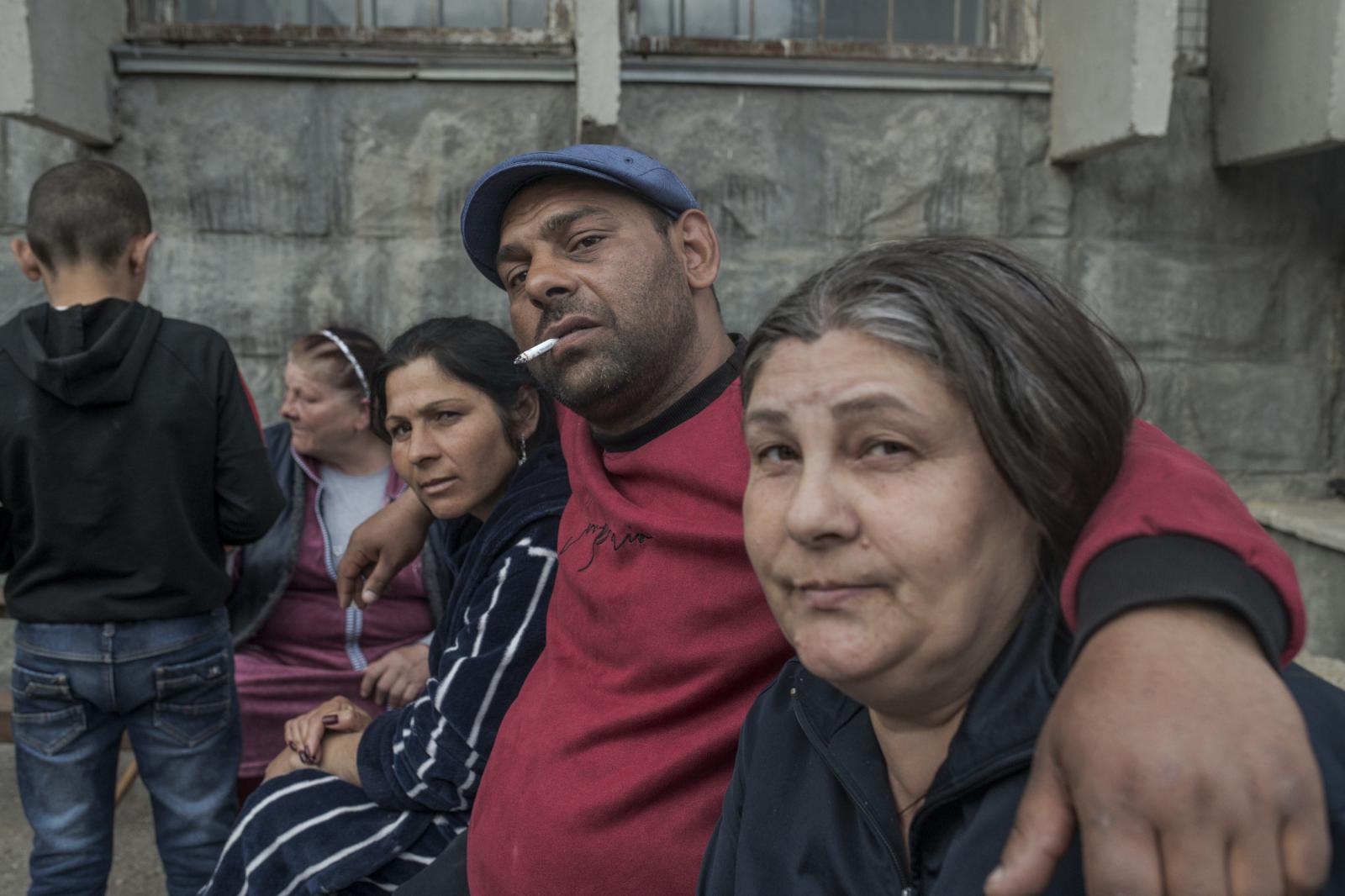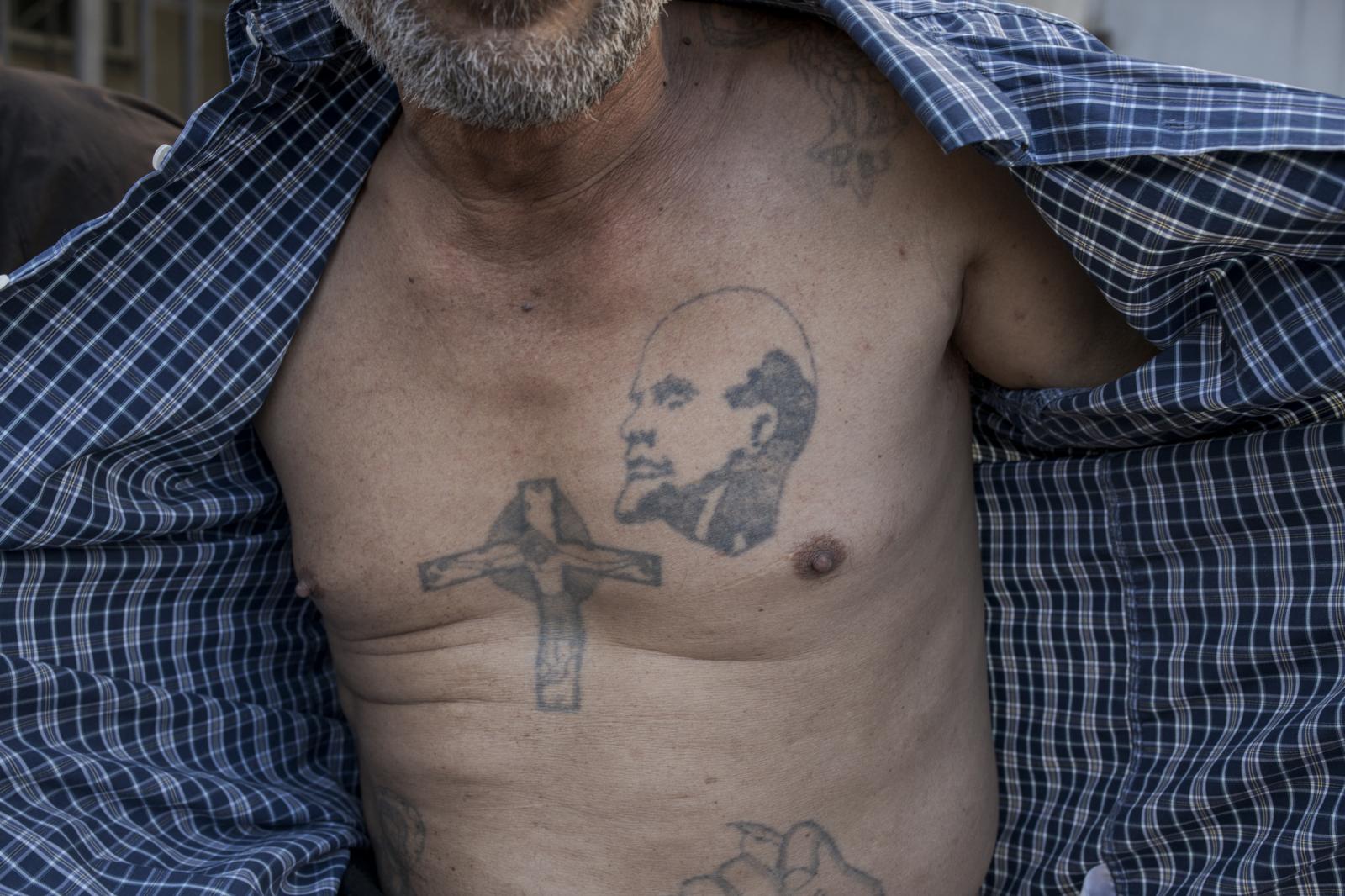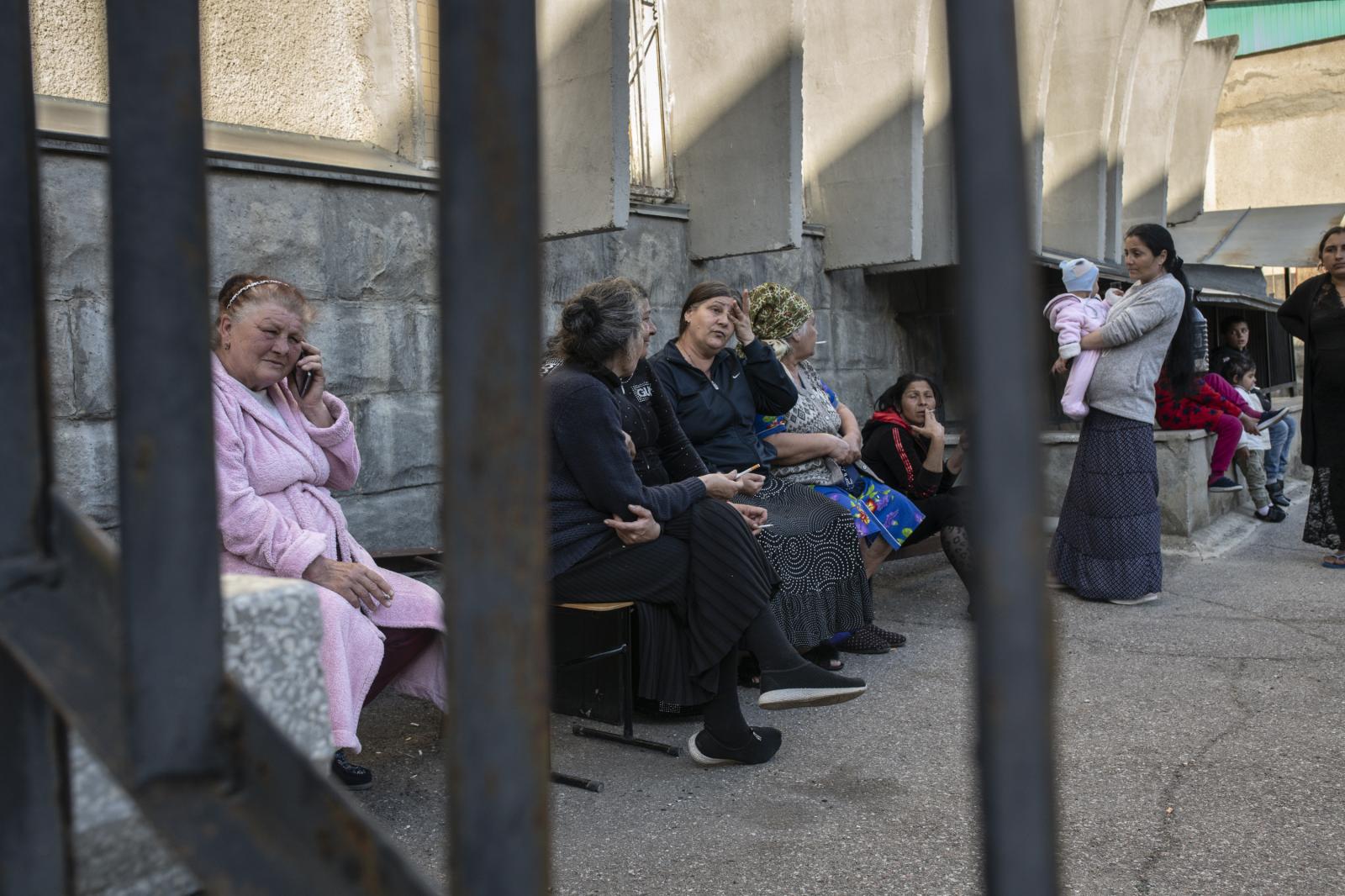Public Story
The refuge of ethnic minorities who escaped the war in Ukraine.
Summary
This building of the University of Chisinau, Moldova, has become the space that a hundred families displaced by the armed conflict in Ukraine occupy to take refuge. These unforeseen tenants belong to the ethnic minorities that inhabited some regions of the neighboring country, but today they are under the uncertainty of not knowing where they will be able to go.
While their future remains uncertain, they have begun to inhabit this space, an old brutalist-style building designed to ideologically instruct the youth of the old U.S.S.R. and not to be the home of the inhabitants of those old peripheries of the Soviet bloc. The spaces do not change in form but in their essence and the uses and relationships within them.
The Roma, also known as "Gypsies", are historically stigmatized and discriminated people, their nomadic essence and the roots of their traditions and customs have made them mark very specific limits with the rest of the social circles different from their environment.
As a result of the armed conflict in Ukraine, a large number of Roma have left that country, it is estimated that around 400,000 Roma lived in Ukraine until March 2022.
Some testimonies on their part point out that despite the fact that they have received help from the different organizations that work in the humanitarian crisis, some point out that they continue to be treated with prejudice, isolated, and segregated due to their practices, an extension of what they already lived within. same Ukraine; Many of these people continue to live with the uncertainty of not knowing when they will be able to return to their homes, many of them do not have documents to move to other places, which is why their situation is getting worse.
Este edificio de la Universidad de Chisinau, Moldavia, se ha convertido en el espacio que un centenar de familias desplazadas por el conflicto armado en Ucrania, ocupan para refugiarse. Estos inquilinos imprevistos pertenecen a las minorías étnicas que habitaban algunas regiones del país vecino, pero hoy se encuentran bajo la incertidumbre de no saber hacia dónde podrán dirigirse.
Mientras su futuro se mantiene en la incertidumbre, ellas y ellos han comenzado habitar este espacio, un antiguo edificio de estilo brutalista pensado para instruir ideológicamente a las juventudes de la vieja U.R.S.S. y no para ser el hogar de los habitantes de esas viejas periferias del bloque soviético. Los espacios no cambian en la forma pero sí en su esencia y los usos y relaciones dentro de ellos.
Los romaníes, también conocidos como “gitanos”, son un pueblo históricamente estigmatizado y discriminado, su esencia nómada y el arraigo a sus tradiciones y costumbres los han hecho marcar límites muy puntuales con el resto de los círculos sociales distintos a su entorno.
A raíz del conflicto armado en Ucrania una gran cantidad de los han salido de ese país, se estima que alrededor de 400 mil romanies habitaban en Ucrania hasta el mes de marzo de 2022.
Algunos testimonio de su parte señalan que a pesar de que han recibido ayuda de los distintos organismos que trabajan en la crisis humanitaria, algunos señalan que siguen siendo tratados con prejuicios, aislados y segregados por sus prácticas, una extensión de lo que ya vivían dentro de la misma Ucrania; muchas de estas personas siguen viviendo la incertidumbre de no saber cuándo podrán volver a sus hogares, muchos de ellos no tienen documentos para trasladarse a otros sitios por lo que su situación se agrava.
Mientras su futuro se mantiene en la incertidumbre, ellas y ellos han comenzado habitar este espacio, un antiguo edificio de estilo brutalista pensado para instruir ideológicamente a las juventudes de la vieja U.R.S.S. y no para ser el hogar de los habitantes de esas viejas periferias del bloque soviético. Los espacios no cambian en la forma pero sí en su esencia y los usos y relaciones dentro de ellos.
Los romaníes, también conocidos como “gitanos”, son un pueblo históricamente estigmatizado y discriminado, su esencia nómada y el arraigo a sus tradiciones y costumbres los han hecho marcar límites muy puntuales con el resto de los círculos sociales distintos a su entorno.
A raíz del conflicto armado en Ucrania una gran cantidad de los han salido de ese país, se estima que alrededor de 400 mil romanies habitaban en Ucrania hasta el mes de marzo de 2022.
Algunos testimonio de su parte señalan que a pesar de que han recibido ayuda de los distintos organismos que trabajan en la crisis humanitaria, algunos señalan que siguen siendo tratados con prejuicios, aislados y segregados por sus prácticas, una extensión de lo que ya vivían dentro de la misma Ucrania; muchas de estas personas siguen viviendo la incertidumbre de no saber cuándo podrán volver a sus hogares, muchos de ellos no tienen documentos para trasladarse a otros sitios por lo que su situación se agrava.

























